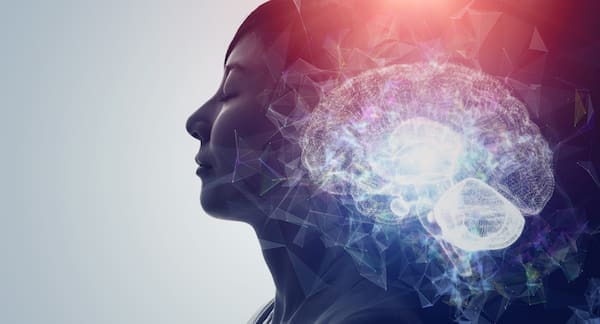Investigating the catalysts of and biological mechanisms behind major depressive disorder (MDD) has proven an ongoing challenge for scientists and clinicians for decades. As various theories have gained and lost ground over the years, the serotonin theory of depression has remained a significant area of interest for researchers. So exactly what is the serotonin theory of depression, and how does current research support and challenge the theory?
In July of 2022, The Journal of Molecular Psychiatry published a comprehensive review by Moncrieff et al. of the evidence linking instances of depression to serotonin presence and/or activity. In total, 17 studies—including meta-analyses, systematic reviews, and various data sets—were synthesized and examined. These research areas encompassed peer-reviewed work studying instances of depression in relationship to serotonin concentrations, receptors (5-HT1A), transporters (SERTs), and gene associations.
What is the Serotonin Theory of Depression and How Has it Shaped MDD Treatment?
First proposed in the 1960s by British psychiatrist Alec J. Coppen, the serotonin theory of depression posits that depression occurs as a result of serotonin imbalances in the brain. The theory quickly became intimately tied to the discovery and dissemination of antidepressant drugs that were designed to increase serotonin levels in the brain.
Since its inception, the serotonin theory of depression has changed the landscape of MDD treatment worldwide, mainly regarding the widespread use of prescription drugs. In America alone, more than 37 million individuals take some form of selective serotonin reuptake inhibitors, or SSRIs.
What The Review of Current Research on the Serotonin Theory Concluded
Surprisingly, the highly comprehensive study by Moncrieff, et al. found the empirical value of the serotonin theory lacking. The researchers found the evidence in the included studies to be inconsistent at best and outdated at worst, complicated by small sample sizes and convoluted by prior usage of antidepressants among participants. They concluded that, “Our comprehensive review of the major strands of research on serotonin shows there is no convincing evidence that depression is associated with, or caused by, lower serotonin concentrations or activity.” The researchers included a call to action for subsequent investigative efforts, particularly regarding the potential long-term effects of antidepressants on serotonin.
Additional Evidence Challenging the Serotonin Theory
Due to the complex and highly nuanced nature of depression, the serotonin theory of depression is not without its limitations. Alongside the Moncrieff study, other researchers have questioned the validity of the theory, as they encourage asking, “What is the serotonin theory of depression and related concepts’ role in modern psychiatry practice?”
While SSRIs have proven effective for many individuals, they are far from regarded as a panacea. Moreover, it can be unclear whether a serotonin imbalance is a precursor to depression or whether the depression itself causes serotonin levels to drop.
Today, depression is regarded by the medical community as a heterogenous illness. Both its underlying causes and symptomatic expressions are manifold, varying widely from patient to patient, calling into question the presumed importance of an imbalance or inadequate levels of serotonin as a primary cause for MDD in all cases.
Evidence Supporting the Serotonin Theory
Despite the ongoing research that challenges the serotonin theory, there is still significant support in the medical and scientific communities for a relationship between serotonin levels in the body to instances of MDD. Many scientists recognize that while a serotonin imbalance may not be solely responsible for instances of depression, serotonin still plays a crucial role in mood regulation and neurological processes. For this reason antidepressant drugs that regulate serotonin levels such as SSRIs and SNRIs continue to play a role in crucial first-line treatment interventions for many individuals struggling with mild to serious depression.
Instead of discarding the longstanding theory outright, clinicians are moving towards new integrative strategies that augment traditional approaches. Emergent treatments such as ketamine therapy may have important effects on serotonin 1B receptors in the prefrontal cortex. Transcranial magnetic stimulation (TMS) uses magnetic coils to deliver electrical currents to stimulate the production of mood enhancing neurotransmitters, among other helpful effects.
Go Beyond Questions Like, “What is the Serotonin Theory of Depression?” and Find The Right Treatment For You with MidCity TMS
Depression is a complex and heterogeneous condition. It can be caused by a wide variety of genetic, experiential, and environmental factors. Whatever its origin, reliable and effective treatment exists for patients searching for substantial relief from this debilitating illness—even beyond antidepressant medication.
After answering the question “What is the serotonin theory of depression?” patients may begin to doubt whether their SSRIs are providing them with significant relief. Transcranial magnetic stimulation—or TMS—provides a safe and effective option in addition to medications and cognitive behavioral therapy. For many years, Mid City TMS has successfully treated patients struggling with complicated instances of treatment-resistant depression. Contact us to discover how TMS treatment can revolutionize the quality of your mental health today.




























